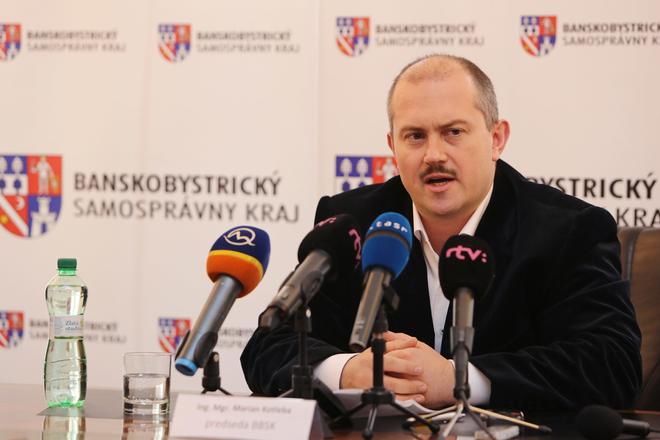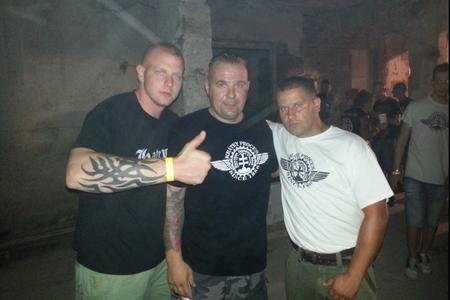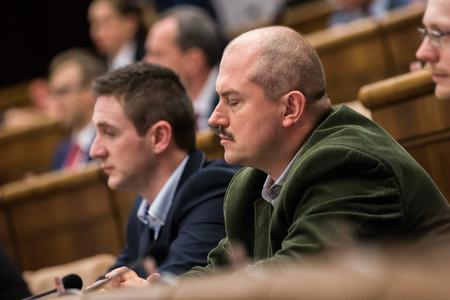Marian Kotleba, the Banská Bystrica regional governor, has been testing the limits of freedom of speech in Slovakia for some time, the Sme daily wrote on July 28. He has been charged by police with promoting extremist movements – donating oversized cheques for €1,488 this March. This figure is a neo-Nazi symbol and initially, his party claimed the amount to be coincidental. Party members collected €4,464 for those in need, later divided into a smaller donation of €1,488 each, explained Milan Uhrík, ĽSNS party vice-chair for promotion. He admitted later, though, that they could have rounded the sum. But then they would not have attracted so much attention.
However, the police was not satisfied with this explanation – as this figure is a famous Nazi symbol alluding to the initials of Adolf Hitler and a song praising the white race. They accused the party chairman, Marian Kotleba, of the crime of sympathizing with extremist movements.
Currently, Kotleba – who did not comment – faces a prison sentence of six months to three years. If sentenced, he would also lose his parliamentary mandate.
Party and its chairman having troubles
His ĽSNS party, which has MPs in parliament, has long used neo-Nazi symbols. Several well-known extremists are among its candidates.
Blogger Ján Benčík clearly proved with his analyses that ĽSNS and Kotleba know all too well the meaning of the Nazi symbols they use.
In 2005, Kotleba was already prosecuted for distributing the agenda of his then-party Slovenská Pospolitosť (Slovak Togetherness) while in uniform. The case ended after four years, unable to prove any intention of Kotleba’s.
Ultimately, Slovenská Pospolitosť was dissolved by the Supreme Court on March 1, 2006. Kotleba then founded another party, the People’s Party-Our Slovakia (Ľudová Strana Naše Slovensko, ĽSNS) and again tested the Slovka legal system when ending his address at a meeting on March 14 (the day when the wartime Slovak State was declared) with “On guard!” or “Na stráž!” He was detained but released when the prosecutor’s office found that the greeting was not a clear reminder of the Slovak State’s Gardist (i.e. Slovak-Nazi) greeting, as it was not accompanied by the typical gesture. Kotleba may have only appealed to those present to be better guardians.
Most recently, Kotleba’s party is suing the Sme daily for claiming he is a neo-Nazi.
The ĽSNS party now faces a motion for dissolution, filed in May by the General Prosecutor Jaromír Čižnár with the Supreme Court. This is for “aiming at the removal of the democratic system in the Slovak Republic”. Kotleba is a chairman of another party, however, re-named in June to Ľudová strana Pevnosť Slovensko/People’s Party Fortress Slovakia. With all probability, it will serve as a back-up in case the ĽSNS is dissolved. Politicians suggest that in some cases, the political activities of individuals, rather than parties, should be banned, Sme wrote.




